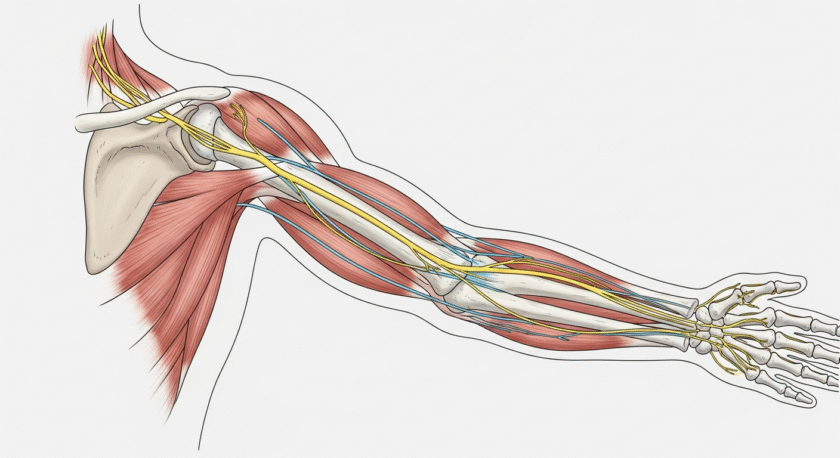Research in VIP Peptide and Cellular Processes
Vasoactive Intestinal Peptide (VIP), a 28-amino acid neuropeptide, is increasingly studied for its diverse biological roles within various systems. Originally identified for its vasodilatory properties, VIP is now speculated to be involved in a myriad of cellular functions, ranging from modulation of immune responses to neuroprotection and cell proliferation.
This article explores the hypothesized mechanisms through which VIP might influence cellular processes and discusses its potential implications for scientific research. By examining VIP’s possible role in inflammation, neurogenesis, and cell signaling pathways, it provides a comprehensive overview of the peptide’s speculative utility as a research tool for understanding complex biological systems.
Introduction
Vasoactive Intestinal Peptide (VIP) is a peptide hormone that was first isolated from the porcine small intestine in the early 1970s. While initially studied for its possible vasodilatory impact on intestinal blood vessels, further investigations have expanded the understanding of VIP’s functional repertoire.
Researchers believe that VIPs may potentially play critical roles in various physiological and pathological processes. Given its widespread distribution across the central and peripheral nervous systems, as well as various non-neuronal tissues, the peptide is posited to be a significant modulator of cellular activities.
VIP Peptide: Immunity
One of the most intriguing aspects of VIP is its potential involvement in immune system regulation. Studies suggest that the peptide might function as an immunomodulatory agent, influencing both innate and adaptive immune responses. Research indicates that VIP may act on immune cells such as macrophages, dendritic cells, and T lymphocytes. It may potentially modulate cytokine production and cellular activation states.
VIP is hypothesized to interact with specific receptors on these immune cells, such as VPAC1 and VPAC2, which may lead to the suppression of pro-inflammatory cytokines like TNF-α and IL-6 while promoting the production of anti-inflammatory cytokines such as IL-10. The implications of VIP in immune regulation seem to be particularly significant when considering conditions characterized by excessive inflammation. It has been theorized that VIP might contribute to the maintenance of immune homeostasis, potentially mitigating the escalation of inflammatory responses that may lead to tissue damage.
This immunomodulatory property positions VIP as a potential research target in the study of autoimmune diseases, where aberrant immune responses play an important role. Furthermore, the peptide’s potential to influence immune cell migration and differentiation suggests it may be a valuable compound for researchers to study the mechanisms of immune cell trafficking and the resolution of inflammation.
VIP Peptide: Neuroprotection and Neurogenesis
VIP’s possible involvement in the nervous system is believed to extend beyond its initial classification as a neurotransmitter. The peptide is now considered a potential neuroprotective agent with speculative implications for neurodegenerative diseases. Researchers have hypothesized that VIP might exert protective impacts on neurons through various mechanisms, including possible inhibition of apoptosis, reduction of oxidative stress, and modulation of neuroinflammatory responses.
Researchers have observed that VIP’s neuroprotective properties may be mediated through its interaction with receptors on glial cells and neurons. VIP is suggested to promote the survival of neurons by activating intracellular signaling cascades, such as the cAMP/PKA pathway, which might lead to the phosphorylation of transcription factors that regulate genes involved in cell survival. Additionally, VIP is theorized to support neurogenesis, potentially contributing to the maintenance and repair of neuronal networks in the adult brain.
The prospect of using VIP as a research tool in the context of neurodegeneration seems promising. By investigating how VIP may influence neuronal survival and differentiation, researchers may gain insights into the fundamental processes underlying neurogenesis and neuroprotection. This may potentially have far-reaching implications for understanding the pathophysiology of diseases such as Alzheimer’s and Parkinson’s, where neuronal loss and dysfunction are hallmarks.
VIP Peptide: Cell Signaling and Proliferation
Beyond its possible roles in immune regulation and neuroprotection, VIP is also believed to be implicated in the regulation of cellular signaling pathways that govern cell proliferation and differentiation. The peptide’s potential to interact with G protein-coupled receptors (GPCRs) like VPAC1 and VPAC2 may result in the activation of second messenger systems, including the cAMP and PI3K/Akt pathways. These pathways are considered crucial in regulating various aspects of cellular metabolism, growth, and survival.
It is postulated that VIP might influence cell multiplication by modulating the expression of growth factors and their receptors. For example, VIP is suggested to support the expression of VEGF, a key regulator of angiogenesis, which might have implications for tissue repair and regeneration. Additionally, VIP’s impact on the PI3K/Akt pathway suggests it might play a role in protecting cells from stress-induced apoptosis, thereby promoting cellular longevity and function.
Given these potential impacts, VIP might serve as a valuable model in studies exploring the mechanisms of cell signaling and proliferation. Its potential to modulate multiple signaling pathways simultaneously makes it a candidate for investigating the cross-talk between different cellular processes, such as how growth signals are integrated with survival pathways in various cell types.
VIP Peptide: Metabolism
VIP is also theorized to significantly impact metabolic processes, particularly glucose and lipid metabolism regulation. The peptide’s potential to modulate insulin secretion and sensitivity suggests it may potentially influence energy homeostasis. VIP is believed to act on pancreatic β-cells, potentially supporting insulin secretion in response to glucose. Additionally, it might modulate the expression of key enzymes involved in lipid metabolism, which may suggest a role in maintaining lipid balance.
The potential implications of VIP in metabolic regulation are of particular interest in the context of metabolic disorders such as diabetes and the development of excessive adipose tissue. By investigating how VIP influences metabolic pathways, researchers may uncover novel mechanisms that contribute to the regulation of energy balance and nutrient utilization. This may potentially open new avenues for research into the pathogenesis of metabolic diseases and the development of novel research strategies.
Conclusion
Vasoactive Intestinal Peptide (VIP) represents a multifaceted molecule with a wide spectrum of possible implications in scientific research. Its hypothetical roles in immune modulation, neuroprotection, cell signaling, and metabolic regulation underscore its possible importance as a modulator of cellular processes.
While much remains to be understood about the precise mechanisms through which VIP exerts its impacts, the peptide’s diverse functional repertoire makes it an attractive candidate for further exploration in various fields of research. As our understanding of VIP’s biological roles continues to evolve, so too does the potential for this peptide to serve as a powerful tool in unraveling the complexities of cellular and molecular biology. Visit biotechpeptides.com if you are a licensed researcher looking for the best research peptides.
References
[i] Kingsbury MA. New perspectives on vasoactive intestinal polypeptide as a widespread modulator of social behavior. Curr Opin Behav Sci. 2015 Dec 1;6:139-147. https://pubmed.ncbi.nlm.nih.gov/26858968/
[ii] Domschke, S., Domschke, W., Bloom, S. R., Mitznegg, P., Mitchell, S. J., Lux, G., & Strunz, U. (1978). Vasoactive intestinal peptide in man: pharmacokinetics, metabolic and circulatory effects. Gut, 19(11), 1049–1053. https://www.ncbi.nlm.nih.gov/pmc/articles/PMC1412244/
[iii] Karen A. Duggan, George Hodge, Juchuan Chen, Tegan Hunter, Vasoactive intestinal peptide infusion reverses existing myocardial fibrosis in the rat, European Journal of Pharmacology, Volume 862, 2019, 172629, ISSN 0014-2999. https://www.sciencedirect.com/science/article/pii/S0014299919305813
[iv] Mosley RL, Lu Y, Olson KE, Machhi J, Yan W, Namminga KL, Smith JR, Shandler SJ, Gendelman HE. A Synthetic Agonist to Vasoactive Intestinal Peptide Receptor-2 Induces Regulatory T Cell Neuroprotective Activities in Models of Parkinson’s Disease. Front Cell Neurosci. 2019 Sep 18;13:421. https://pubmed.ncbi.nlm.nih.gov/31619964
[v] Chorny, A., Gonzalez-Rey, E., Fernandez-Martin, A., Pozo, D., Ganea, D., & Delgado, M. (2005). Vasoactive intestinal peptide induces regulatory dendritic cells with therapeutic effects on autoimmune disorders. Proceedings of the National Academy of Sciences of the United States of America, 102(38), 13562–13567. https://www.ncbi.nlm.nih.gov/pmc/articles/PMC1224633/



